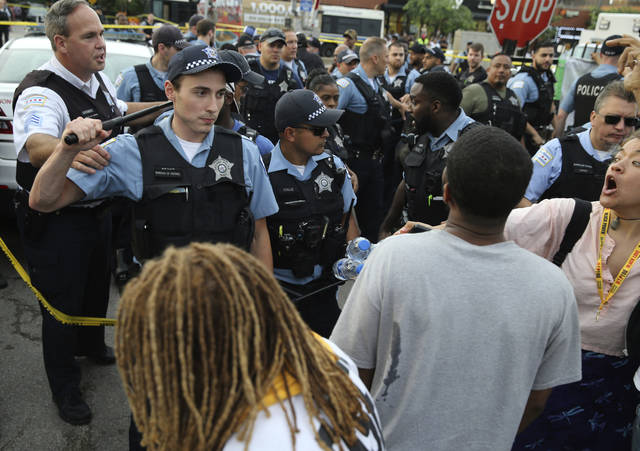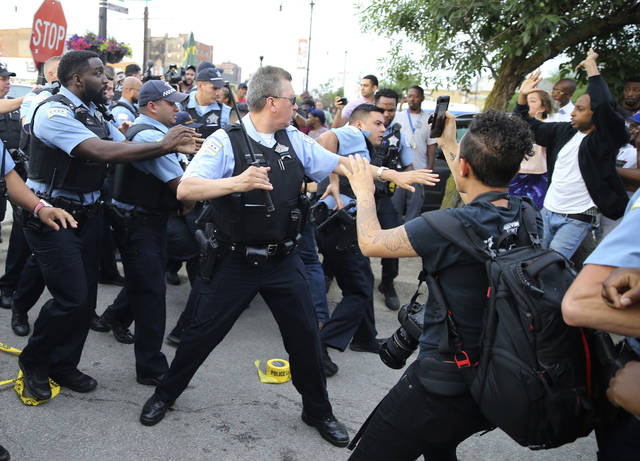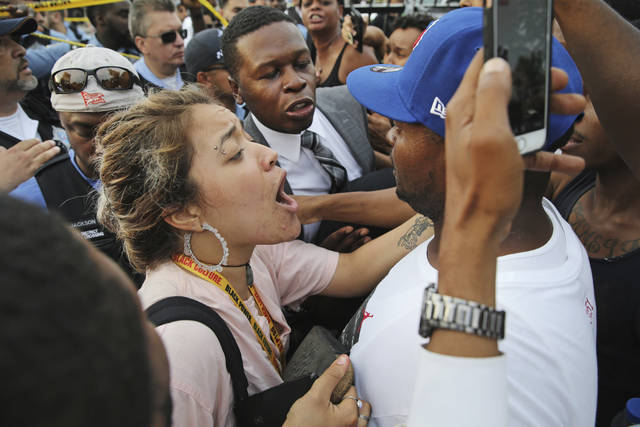CHICAGO — Footage from body cameras and surveillance cameras shows that a man who was shot and killed by a Chicago police officer was armed with what appears to be a handgun, a department spokesman said Sunday.
The shooting Saturday evening in the Grand Crossing neighborhood on the city’s South Side sparked a clash between angry residents and baton-wielding officers. Four protesters were arrested and some police officers suffered minor injuries from thrown rock and bottles, some of which were filled with urine. Two squad cars were also damaged.
Authorities haven’t released the name of the man who was killed, but police spokesman Anthony Guglielmi said he was in his 30s, wasn’t a known gang member and had no recent arrest history.
Police found a handgun and two magazines of bullets at the shooting site and sent them for testing, Guglielmi said.
The shooting happened after officers patrolling on foot tried to question the man over a “bulge around his waistband” that suggested he was armed, patrol chief Fred Waller told reporters. The man broke free and ran from the officers, who believed “he appeared to be reaching for a weapon” and shot him, he said.
During the protest that followed the shooting, officers pulled people to the ground and struck them with batons.
The Civilian Office of Police Accountability, which investigates officer-involved shootings, said it was analyzing the video and asking anyone who may have captured cellphone footage of it to share the footage with the agency. The agency will release the video to the public within 60 days, unless ordered not to by a court, said agency spokesman Ephraim Eaddy.
It was at least the third time in the last two weeks that a Chicago police officer shot someone.
Chicago has a troubled history of police shootings. The city erupted in protest in 2015 after the release of a video showing a white police officer shoot a black 17-year-old, Laquan McDonald 16 times a year earlier. The officer, Jason Van Dyke, was charged with murder. McDonald’s death led to the ouster of the police chief and a series of reforms meant to prevent future police abuses and to hold officers accountable.




